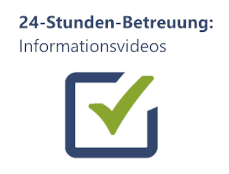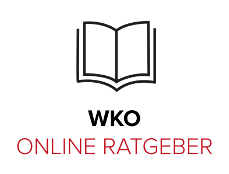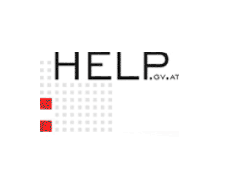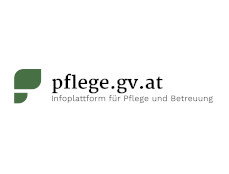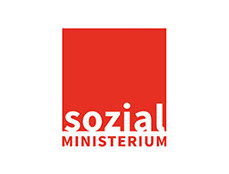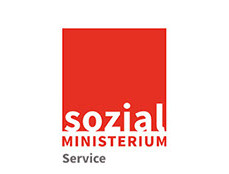Financial subsidies for caregiving
Funds for 24-hour care
Funds for 24-hour care
In addition to the care allowance in 7 stages, in Austria additional funding for 24-hour care can be requested under the following conditions:
The person needing care must require around the clock care and be in receipt of a care allowance of at least level three according to Austrian legislation, as well as a monthly net income that does not exceed 2,500 euros.
This limit is raised for any dependents by 400 euros or 600 euros for each disabled dependent.
Care allowance, bonuses, family benefits, child care benefits, housing benefits and others are not included in the income. The assets of the person requiring care are disregarded.
In order to benefit from funding for 24-hour care, the commissioned independent caregiver must also
- have theoretical training which is essentially that of a home helper
- or have cared for the person requiring care for at least six months
- or perform certain nursing and/or medical activities by arrangement, instruction, and under the supervision of a medical professional.
- The amount of funding for caregivers is 275 euros per month per caregiver, a maximum of 550 euros per month (equivalent to two independent caregivers).
Caution: there may be different funding conditions due to state subsidies in the individual Austrian states.
All documents required for applying for the grants can be downloaded on the website of the Ministry of Social Affairs service at www.sozialministeriumservice.at or by calling 05 99 88.
Basic information:
In Austria there are 7 levels of care allowance. The classification is based on the establishment of different care expenses per month. The lowest care allowance, level 1, starts at a care need of more than 65 hours per month; level 3 starts at more than 120 hours. The number of hours of the monthly need for care is established by a doctor or nurse. The care allowance is paid twelve times per year monthly in arrears. No income tax and no health insurance contribution is deducted from the care allowance.
Level 1: More than 65 hour scare required per month
Level 2: More than 95 hours care required per month
Level 3: More than 120 hours care required per month
Level 4: More than 160 hours care required per month
Level 5: More than 180 hours care required per month if extraordinary care is required
Level 6: More than 180 hours care required per month if care measures are required for which times cannot be specified and these are to be performed regularly during the day and night or the permanent presence of a caregiver during the day and at night is necessary because of the probability of risk to themselves or others
Level 7: More than 180 hour care required per month, if neither controlled movement of the four extremities nor the use of them is possible, or if a similar condition exists
Tax deductibility:
Expenses for 24-hour care such as costs for independent caregivers, organising care services, medication and nursing products are tax-deductible in the following year as extraordinary expenses. Tax free grants and subsidies such as the care allowance or funding for 24-hour care are however deducted. The extraordinary expenses can also be claimed in full by the person requiring care or by his/her partner who is the sole earner, or by other dependents, albeit with certain limitations. The extraordinary expenses are to be claimed by proving the actual costs incurred in connection with the employee tax assessment or income tax return.
All documents required for applying for the grants can be downloaded from the website of the Ministry of Social Affairs at www.sozialministeriumservice or obtained by phoning
05 99 88.
Who is responsible for granting and payment of the care allowance?
In general the care allowance can be claimed under certain conditions by or for people of all ages who are likely to require continuous care due to illness, accident, disability or age-related limitations for a period of at least 6 months, amounting to more than 65 hours per month. The need for care is determined by the competent authority in a report.
For those in receipt of a pension from the statutory pension insurance fund, responsibility for awarding and paying the care allowance stages 1 to 7 lies with the relevant pension insurance or social insurance institution.
For recipients of a full pension from the accident insurance, the relevant accident insurance company is responsible for awarding and paying the care allowance, provided that the need for care arose from an injury at work or from a work-related illness. In the area of the AUVA (Austrian General Accident Insurance Institution), however, the pension insurance institution is again the awarding and paying agent.
The pension insurance institution (PV) is similarly responsible for all other persons.
Applications for award and payment should be sent to the competent authority; the relevant forms can be downloaded on the website. Online forms are also available.
Who is responsible for granting and paying funding for 24-hour care?
The contact point for questions about funding for 24-hour care is the local office of the Ministry of Social Affairs Service. Funding can also be applied for here.
Is there other funding for independent caregiving services?
In addition to tax deductibility, under certain conditions and financial requirements there is also the possibility of granting aid to support caregiving family members. It is used for temporary relief of family carers by a professional replacement company. Individual municipalities may also grant additional grants or benefits.





